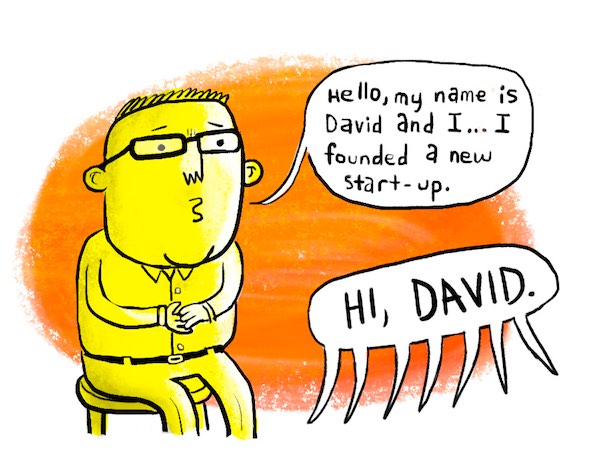Caveat: This method works best with someone who you’re close to and who you already spend a lot of time with. This article won’t help you butter up your boss for a raise.
You’re going to:
- Offer tons of value in the weeks leading up to the big day. That way, when it comes time to ask, she (or he) will already feel karmically indebted to you.
- Make the proposal after she has already exercised for the day (preferably after a hard workout).
- Pop the question right after she takes the first bites of her post-workout meal.
If this sounds random, trust me, it will all make sense soon. After all, it’s science (the science of reciprocity to be exact).
Step 1: lays the psychological groundwork for a positive response.
Step 2: primes her brain for clear thinking and emotional calm with physical activity.
Step 3: times the question for when she’s most likely to give you a yes.
Step 1: Offer Value. Be Positive. Be Memorable.
Let’s face it; we’re suckers for good energy. Happiness is a commodity few people can say “no” to. In the weeks leading up to popping the question, get on her good side. The trick here is to be subtle, and you’re going to do that by blasting her with positive “passive” energy. What do I mean by “passive”? Be a joy to be around! The good energy she picks up from you just by being your happy self will sneakily win points for you.
Over the course of the next few weeks, sprinkle in some direct favors. Go out of your way to help her here and there, but don’t overdo it. Too many favors and she might get the impression that you’re sucking up to her. That’s what you don’t want to do, and that’s the reason why it’s important to make her feel good without it looking like you’re trying to.
“Love is a positive, symbiotic, reciprocal flow between two or more entities.” – Inga Muscio
There are two factors are at work here:
- You’re establishing a positive association between you and her, good things are happening, and good feelings being felt.
- You’re also engaging the principle of reciprocity.
In social psychology, reciprocity refers to the compulsion we all have to keep tabs on favors. Apparently, it drives us nuts when this gets out of balance. Reciprocity also addresses the expectation of treating others as they treat you.
Psychologist Robert Cialdini discusses the principle of reciprocity is in his classic book, Influence, The Psychology of Persuasion. In it, Cialdini explains that reciprocity is a cultural expectation that’s deeply ingrained into the fabric of who we are.
By the time you’re done buttering her up, the favors will be lopsided in your favor, and she’ll be more likely to say yes to your proposal.
Step 2: Make the Proposal When Her Brain is Stress-Free
Exercise is proven to reduce stress and anxiety, improve short-term memory, and stabilize your mood. These benefits are primarily due to the reduction of the stress hormones adrenaline and cortisol. Exercise also releases feel-good endorphins and encourages the expression of BDNF (brain-derived neurotrophic factor) in the brain. BDNF is a protein that’s critical for memory and learning.
That’s why you’re going to wait to ask the big question until she has already gotten her workout in for the day. “But what if she doesn’t work out very often?” you say. If that’s the case, going for a walk will have to do. A nice stroll is still better than nothing, and the positive health effects of walking on the brain are also well-documented. According to research, when you walk, the foot’s impact helps control and increase the amount of blood that’s sent to the brain.
At this point, you’ve gotten on her good side, her brain is feeling phenomenal, and now it’s time to put the icing on the cake and go for it.
Step 3: Pop the Question While She’s Enjoying a Delicious Meal
What’s the icing on the cake? Cake! Or at least it could be. Ideally, though, she’ll be hungry enough for a full meal. You don’t want her to be famished, but definitely a solid 7 out of 10 on the hunger scale. She’s more likely to say yes when she’s absorbed in the ecstasy of the food she’s been craving. Full people say, “yes.” Hungry people say, “no.”
Psychology Today wrote an interesting article about the fluctuation of parole approvals issued by judges over the course of their shift. Apparently, hungry judges make tougher sentences. As lunch approaches (and the judge gets hungrier), he approves fewer and fewer inmates for parole. After lunch, however, the judge accepts significantly more parole applications. By the end of his shift, the parole rates once again plummet. This guy is keeping people in prison based off of how hungry he is!
We’ve all experienced that warm feeling of relaxation wash over the table when the food is finally served. It’s this feeling that you’re going to capitalize on. When she’s a few bites into her dish, that’s your cue. Don’t be nervous! Success is in your favor. If you’ve done your due diligence over the course of the last few weeks, now is as good a time as ever to let the dice roll.
“Food is not rational. Food is culture, habit, craving and identity.” – Jonathan Safran Foer
Conclusion
Are you asking your wife if you can dig up the lawn and put a dirt bike course in the backyard? Hoping that your roommates will let you get a dog? Whatever it is, I wish you the best of luck. Make sure to feel their energy out as you go. Life isn’t as predictable as a 3-step formula, so if it feels like a bad time to pop the question, it probably is. Trust your gut and only pull the trigger if the positive vibes are going strong. Make sure that there’s a smile on their face, give them a smile right back, and get that ‘YES’!
How will you be using this three step formula to get a “yes” in your life? Let us know in the comments below!
from
https://addicted2success.com/success-advice/the-3-step-formula-to-get-a-yes-when-it-matters-most/


 – More time
– More time
 Both strategies proved to be winners. The biggest thing I did though was spent less and automatically deduct money from my income, and place it into investments. You can start from any financial position and invest any amount of money.
Both strategies proved to be winners. The biggest thing I did though was spent less and automatically deduct money from my income, and place it into investments. You can start from any financial position and invest any amount of money. For around five years I’ve put off starting another business. 2017 was the year I created my social media consulting agency and begun my coaching business. Both these business ventures allow me to help others and get paid to do what I love.
For around five years I’ve put off starting another business. 2017 was the year I created my social media consulting agency and begun my coaching business. Both these business ventures allow me to help others and get paid to do what I love. I decided to buy him both these presents to show him that strangers care. It’s not about the gift that I gave him – what I wanted him to see was that strangers care. This gift gives him the ability to have hope that his family’s situation can change.
I decided to buy him both these presents to show him that strangers care. It’s not about the gift that I gave him – what I wanted him to see was that strangers care. This gift gives him the ability to have hope that his family’s situation can change.
 Many people at the Christmas lunch I volunteered at were from questionable backgrounds. Some had been in prison and many were addicted to illegal drugs. Seeing the good in everyone on Christmas allows you to be compassionate and help others to see what’s possible.
Many people at the Christmas lunch I volunteered at were from questionable backgrounds. Some had been in prison and many were addicted to illegal drugs. Seeing the good in everyone on Christmas allows you to be compassionate and help others to see what’s possible.
 Your 20’s start out being all about you. As you move through life, it becomes more about what you can do for others. The quicker you get to this way of living, the faster you’ll reach
Your 20’s start out being all about you. As you move through life, it becomes more about what you can do for others. The quicker you get to this way of living, the faster you’ll reach  Everyone, when they are young, falls for the idea of success that is money, fame and a good career. This whole philosophy will fall off a cliff when you reach your 30’s. Once you’ve had a small taste of all of this, you’ll see how meaningless it is.
Everyone, when they are young, falls for the idea of success that is money, fame and a good career. This whole philosophy will fall off a cliff when you reach your 30’s. Once you’ve had a small taste of all of this, you’ll see how meaningless it is. No matter how much you try, if you spend time with these people, then a little bit of them will rub off on you. Reputation takes years to create and only minutes to destroy. Lying, faking, imitating and focusing on the past will not allow you to take any shortcuts.
No matter how much you try, if you spend time with these people, then a little bit of them will rub off on you. Reputation takes years to create and only minutes to destroy. Lying, faking, imitating and focusing on the past will not allow you to take any shortcuts.